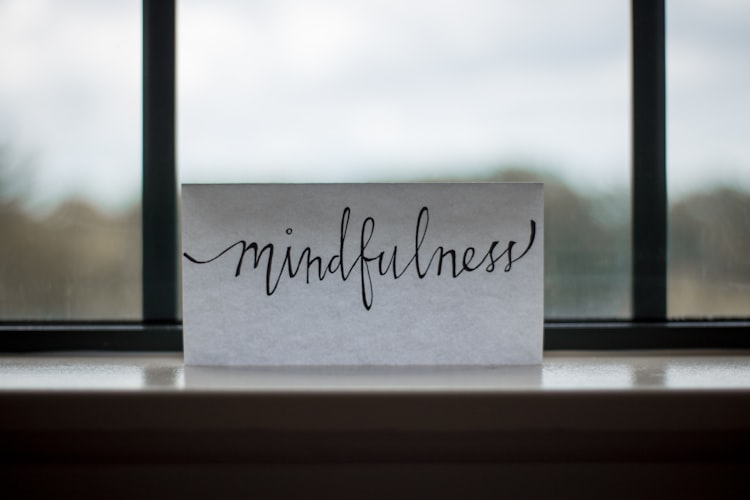A wedding is one of the most important times of your life, and as such, you want your wedding to be as awesome as possible. While this is usually a good thing, many people fall victim to the stresses that can happen when you’re planning a wedding. It can be a stressful time, and this stress can overtake the joy if you’re not careful. Let’s dive into this subject and see what you can do.
Signs You’re too Stressed
First, it’s impossible for you to avoid any stress during planning. A little bit of stress is natural, and it can give you the motivation you need to have the best wedding possible. The problem comes when you’re overstressed. Here are some signs that you have too much stress.
-
You Start to Get into Fights With Your Family, or Your Partner
Your wedding is designed to unite your family, and to unite you with your partner in holy matrimony. So if you find yourself fighting with everyone, then that’s a problem. Fights can occur due to disagreements on the wedding, or because you’re irritable due to too much stress.
-
You Skip Meals or Other Important Things to Plan
If you’re so busy with planning your wedding that you’re skipping meals, this is never a good thing. Besides meals, another sign that you may be stressed is if you’re sleeping less, or if you’re avoiding exercise because you’re so busy. While it can be a time-consuming event, it shouldn’t be enough for you to skip these things.
-
You Overthink
Another sign that you’re stressed is when you start to overthink and over-criticize your decisions. You may feel like you should pick another venue, or spend more on a better photographer. In planning, you always are your biggest critic, and it’s important for you not to be too harsh when you’re planning your wedding.
-
You Procrastinate
Sometimes, the opposite of spending too much time on planning can mean you’re stressed. If you’re pushing off planning and taking care of your wedding, this could be a sign of too much stress.
Think back to college or high school. When you had a big assignment, you may have put it off. The stress is too much to handle, so you believed that you should just do it later. Then, the date is almost here and you panic.
-
It Feels Like a Bad Job
Finally, one of the biggest signs that you’re stressed is that it stops being fun. Instead, it feels like a job you’re being forced into. Wedding planning is stressful to some degree, but it should be fun, too. You can have both. If it’s not fun and it feels like a day at the office, you may need to rethink how you’re planning things.
You Just Feel its Effects
Sometimes, you know you’re stressed because you just feel it. The anxiety is building up in your stomach. You may feel your hands shaking, or you could be sweating all the time. You may be practicing unhealthy habits to cope with all the stresses you’re feeling as a result. When you’re feeling this way, it’s time to reduce the stress, but how can you do so?
How to Reduce Stress
Here are some ways that you can reduce stress.
-
Keep Your Health Up
Eat right, exercise, and get plenty of sleep. If you skip any of these while planning, it’s just going to make your mental health a whole lot worse. Take some time to eat, to rest, and to unwind.
-
Take a Break
Unless you’re procrastinating, why not take a break? Give yourself a few days to do something that’s fun. If there’s an issue with the wedding that’s stressing you out, taking a break can help by lowering your stress and allowing you to look at your wedding with a fresh pair of eyes.
-
Don’t Do it All On Your Own
We get it. It’s your wedding, so you want to do as much as possible. However, you’re not a superhero. You may not be able to plan everything without wanting to tear your hair out. This is why it’s important for you to have helpers.
For example, if our friends or family want to help out, let them! Don’t think that their help is unneeded, because you may find that they can reduce how stressful you feel during a wedding.
Also, get a wedding planner if you’re able to. They can help quite a lot.
-
Practice Mindfulness
When you have a lot going on, it’s hard for you to keep your mind off the future. Mindfulness, which involves being in the here and now, can help you. Through meditative breathing, body scans, and being in the here and now, mindfulness can help you with your stresses.
Anyone can learn mindfulness, and you don’t need any special tools, either.
-
Remember, No Wedding is Perfect
Another reason why you may be stressing is that you’re a perfectionist. You want a wedding that’s right out of a fairy tale. The problem is that those fairy tales aren’t real. Even if your wedding goes great, there’s always something you wish you could have improved on, or something you forgot to do. Learning to find the beauty in imperfection is important.
Also, this helps you to control your budget. Don’t spend more than you have to.
-
Remember Why You’re Doing it
Many people are so busy planning their weddings that they forget why they’re doing it. You’re doing it to marry someone you love. It needs to be more than just being about you. It’s about the love you two share.
-
Talk to a Therapist
If you feel excessive stress, anxiety, or depression due to your wedding, it could be more than just the stresses. Many people have underlying mental health issues that could be contributing to their stress, and it’s important that a health professional helps you.
It’s important that you seek the help of a therapist or counselor during this time. If you’re so busy you can’t go to the office, one way you can get the help you need is through online therapy. By speaking to a therapist online, you can lower your stress and anxiety. Not only that, but a therapist is good at splitting your big goals into something more manageable. For more information on how you can connect to an online therapist, click here:
https://www.betterhelp.com/start/
Marie Miguel has been a writing and research expert for nearly a decade, covering a variety of health- related topics. Currently, she is contributing to the expansion and growth of a free online mental health resource with BetterHelp.com. With an interest and dedication to addressing stigmas associated with mental health, she continues to specifically target subjects related to anxiety and depression.













Leave a Reply